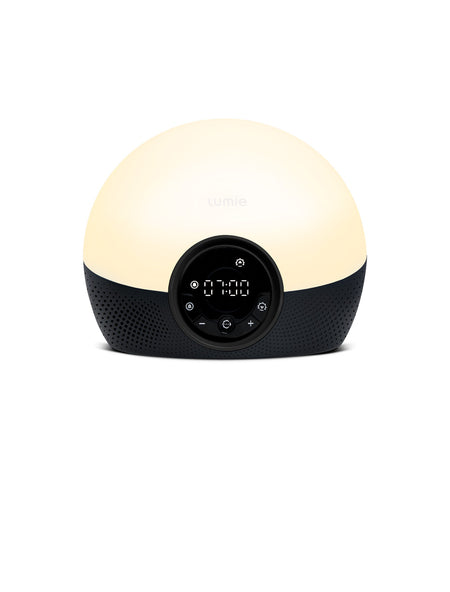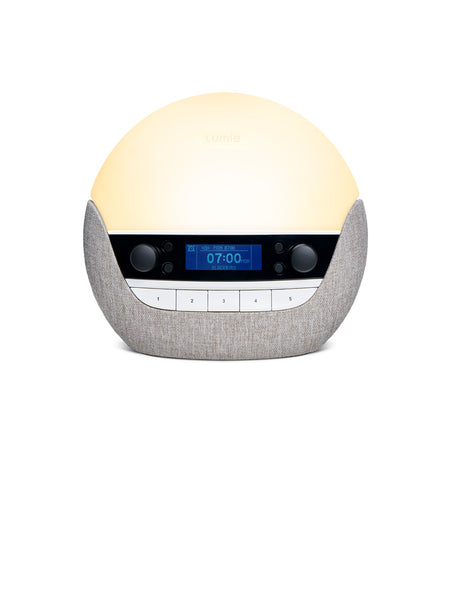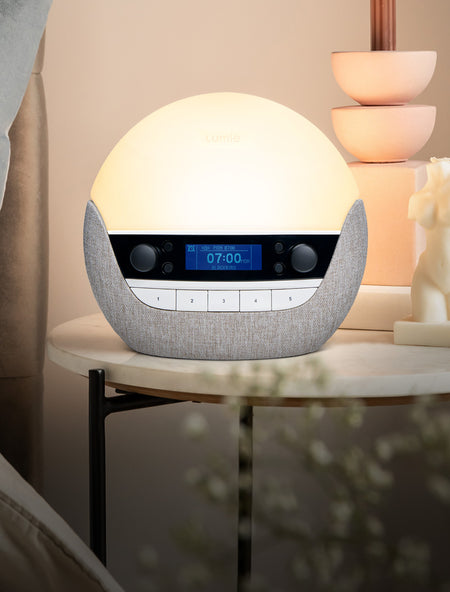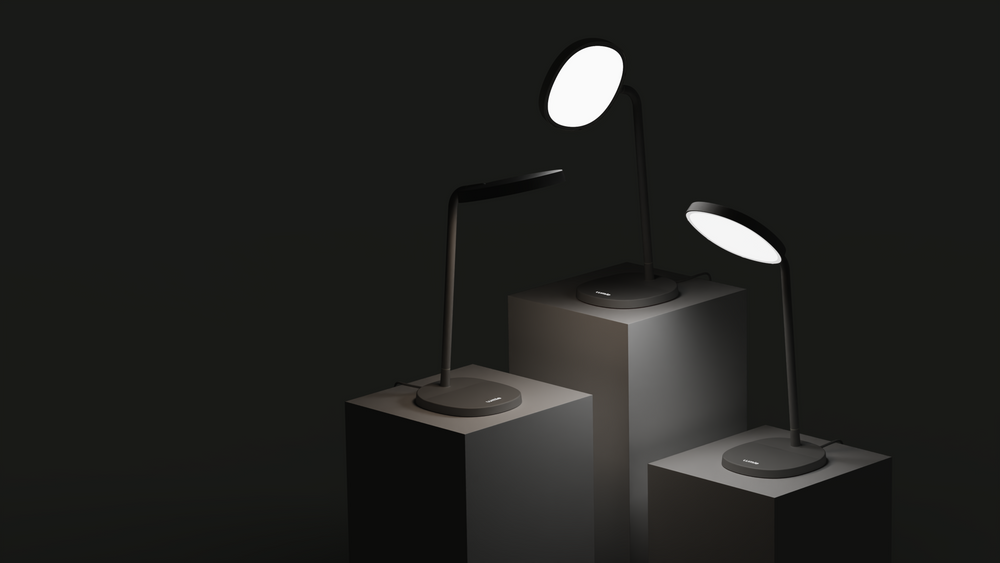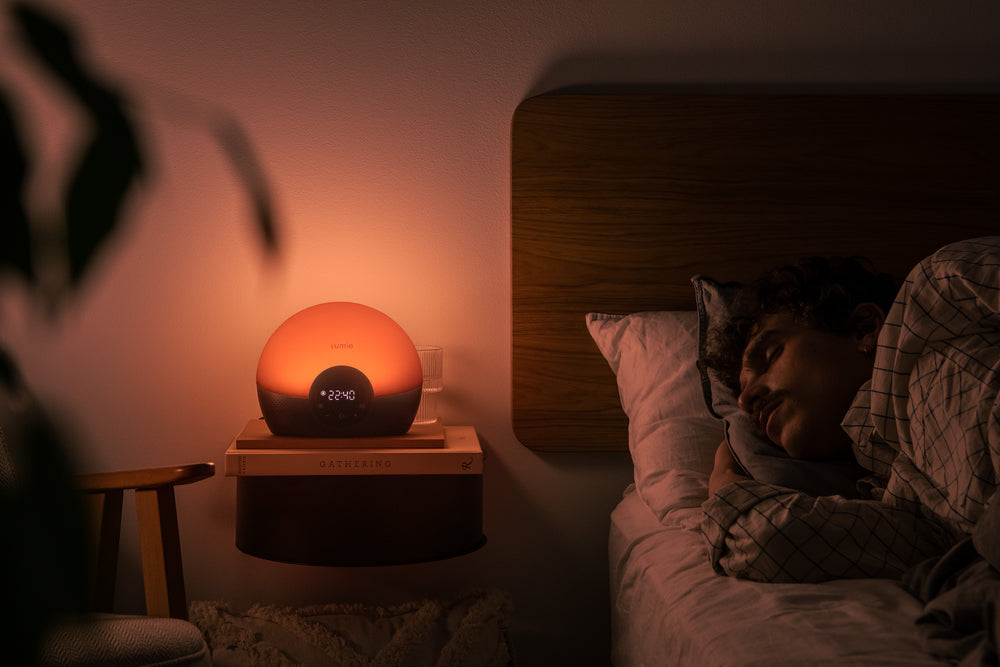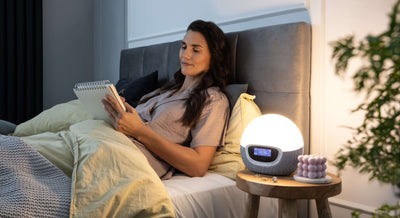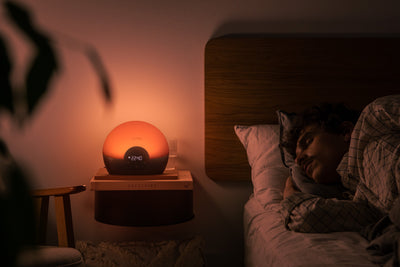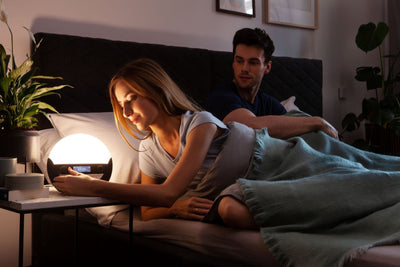Why should everyone take vitamin D? Expert advice from a molecular biologist
We know how important light exposure is to our overall wellbeing, and how detrimental it can be when we’re not getting enough! Daylight is crucial in regulating our circadian rhythm, as well as prompting the production of serotonin (the happy hormone), improving our mood and energy levels during the day, and helping us get a better night’s sleep.
When this much-needed daylight is limited in winter, it is common to suffer from seasonal affective disorder (SAD) and winter blues, experiencing symptoms such as sleep problems, overeating, depression and lethargy. Light therapy is a great natural way of treating these symptoms, with research showing that 30 minutes in front of a SAD lamp each morning can significantly improve mood and quality of sleep in patients with seasonal affective disorder.
But one thing that light therapy can’t offer is help with maintaining a healthy level of vitamin D, often referred to as the ‘sunshine vitamin’, which is normally produced in the skin using energy from sunlight. Vitamin D is a powerful nutrient that can significantly impact our mood, energy levels, muscle and bone health. When daylight is limited – or if you spend a lot of time indoors - it is important to supplement vitamin D for your overall health and wellbeing.
We have partnered with BetterYou, specialists in the supplementation of key nutrients lost through our changing diet and lifestyle, to explain why everyone should be taking vitamin D. Keeley Berry, Molecular Biologist and NPD Manager at BetterYou explains why.
Vitamin D is known for its role in immune health as it is crucial in defending the body against bacteria and viruses, with many studies finding links between vitamin D deficiency and poor immunity. Researchers have found that low levels of this vital vitamin are linked to a higher risk of sleep disorders, poor sleep quality and shorter sleep duration, as well as depression, autoimmunity, and weight gain - so it’s important that we all maintain healthy levels year-round.
Low levels of this vital vitamin are linked to a higher risk of sleep disorders, poor sleep quality and shorter sleep duration, as well as depression, autoimmunity, and weight gain. Keeley Berry, Molecular Biologist and NPD Manager at BetterYou
Vitamin D deficiency is a worldwide issue, with around one billion people across the globe experiencing inadequate levels and around ten million people in the UK expected to be at-risk of deficiency.

Everyone requires vitamin D for optimal well-being, but those considered most at-risk of deficiency are children under five-years-old, teenagers, pregnant women, and the elderly, in addition to people leading very indoor lifestyles, those following a plant-based diet and those with darker skin tones
Symptoms of deficiency can present as common health conditions such as headaches, muscle soreness and poor bone and tooth health, catching frequent coughs and colds and even fatigue and low mood. These signs are often attributed to other lifestyle factors, so if you’re concerned that your levels may be low, it may be sensible to get your vitamin D levels tested. This is easily done either through visiting your GP, or by purchasing an at-home finger prick test, like the one from betteryou.com.
Symptoms of deficiency can present as common health conditions such as headaches, muscle soreness and poor bone and tooth health, catching frequent coughs and colds and even fatigue and low mood. Keeley Berry, Molecular Biologist and NPD Manager at BetterYou 80 to 90 per cent of our vitamin D stores are provided by the sun and for people living in the northern hemisphere, the amount of UVB radiation is not sufficient to produce adequate amounts of vitamin D. Even during the summer months, it is predicted that up to 13 per cent of the population will be deficient. Due to clothing, cosmetic skin protection and our increasingly indoor existence, our skin’s unprotected exposure to sunlight is drastically reducing and our body’s ability to make its own vitamin D declines as we opt to protect our skin from the sun. This is because UVB rays are required to convert cholesterol in our skin cells into our very own self-made vitamin D.

We know that vitamin D is stored in the body for only 40 to 60 days, so taking a supplement – based upon specific blood levels – is the best way to keep our vitamin D levels at their optimum. Not just during the winter months, but year-round.
No ‘one size fits all’ solution exists for vitamin D supplementation and Public Health England’s recommendation of 400IU (10mcg) per day, is simply not effective for everybody. In fact, many doctors and healthcare professionals advocate for vitamin D supplementation of doses up to 4000IU per day, or at least 2000IU for healthy adults.
For some people tablets and capsules may not be a suitable method of supplementation as many of us struggle to absorb nutrients through the gut or we simply find them difficult to swallow. A pill-free alternative, such as BetterYou’s Vitamin D3000 Oral Spray, is a fantastic way to supplement as the nutrient is absorbed quickly via the inner cheek of the mouth.




